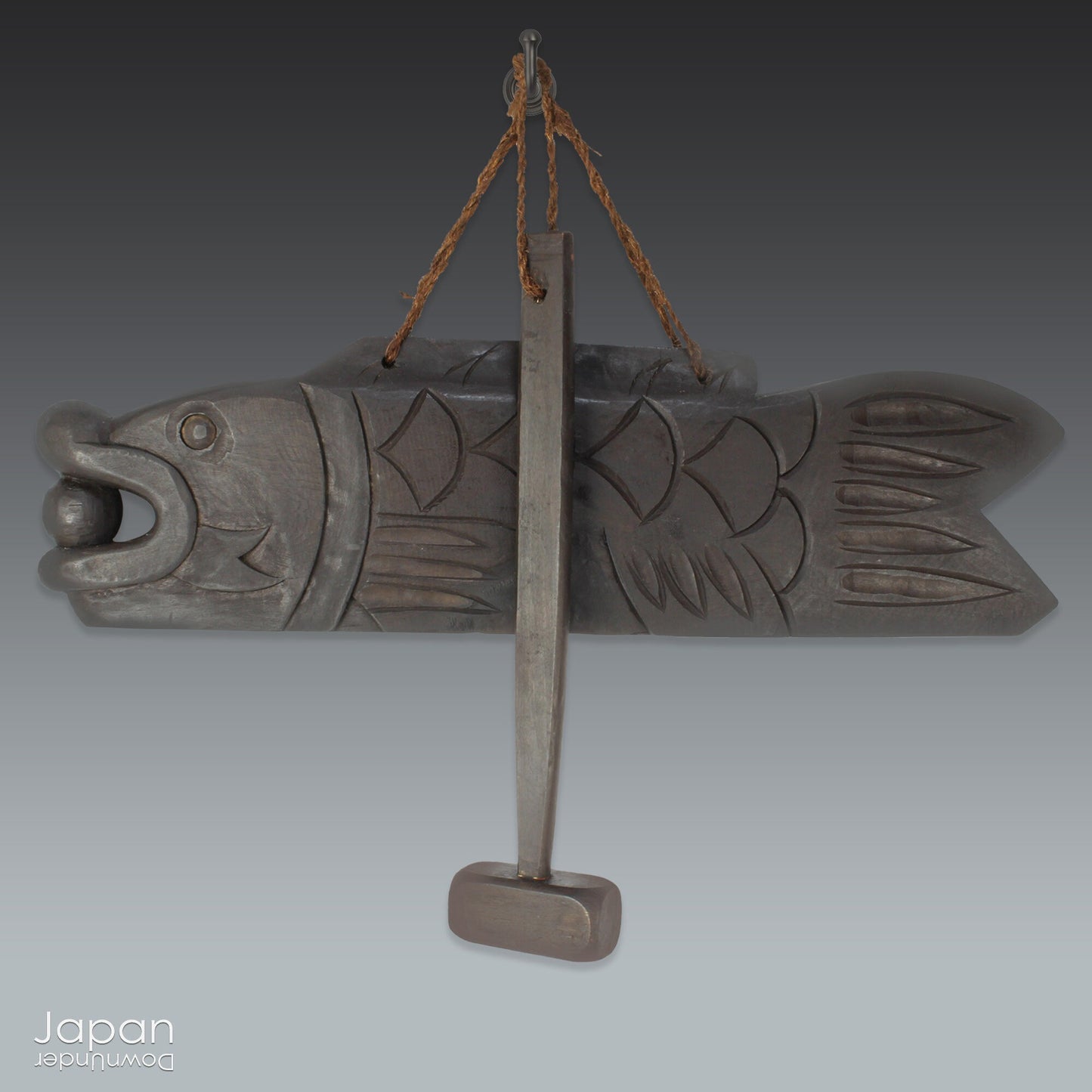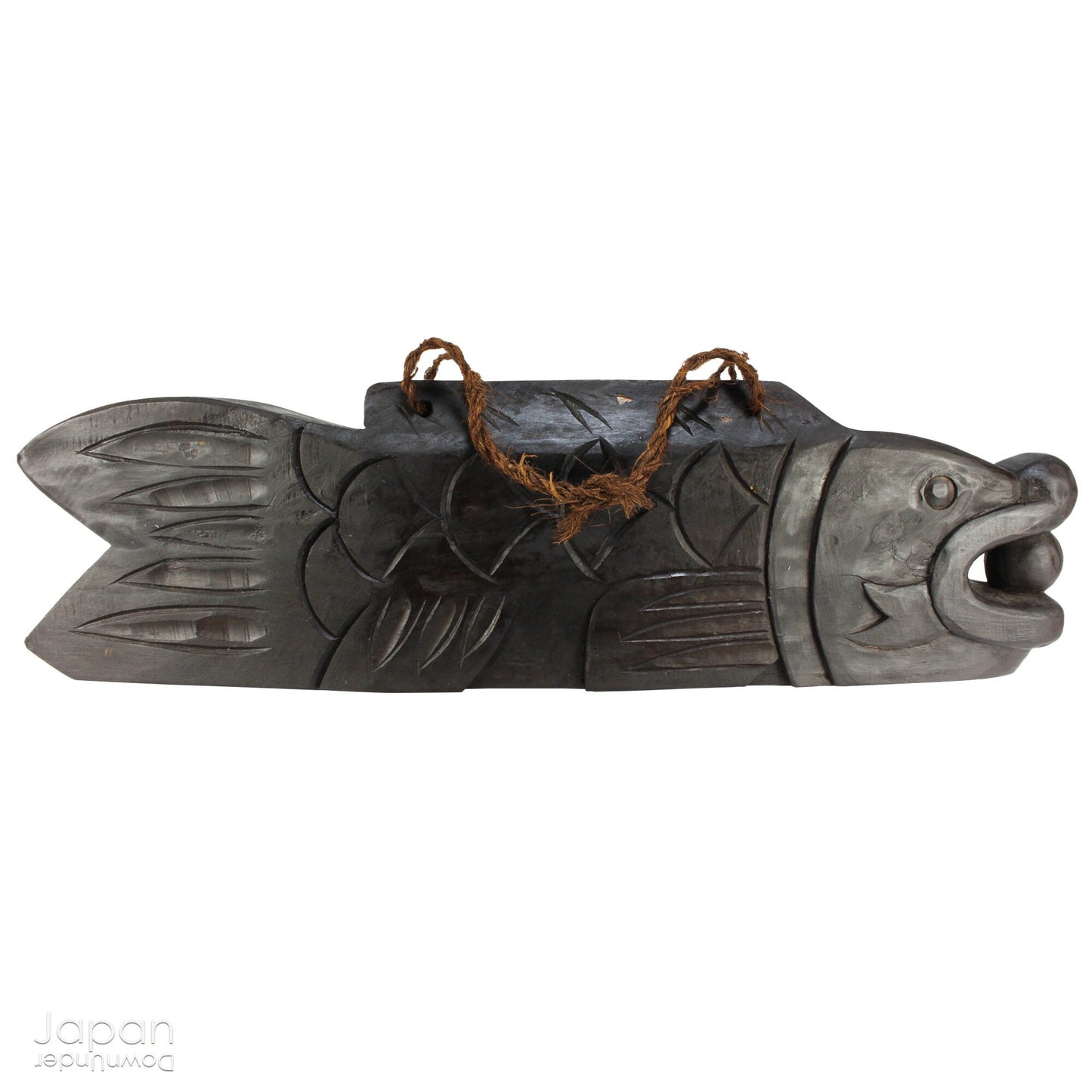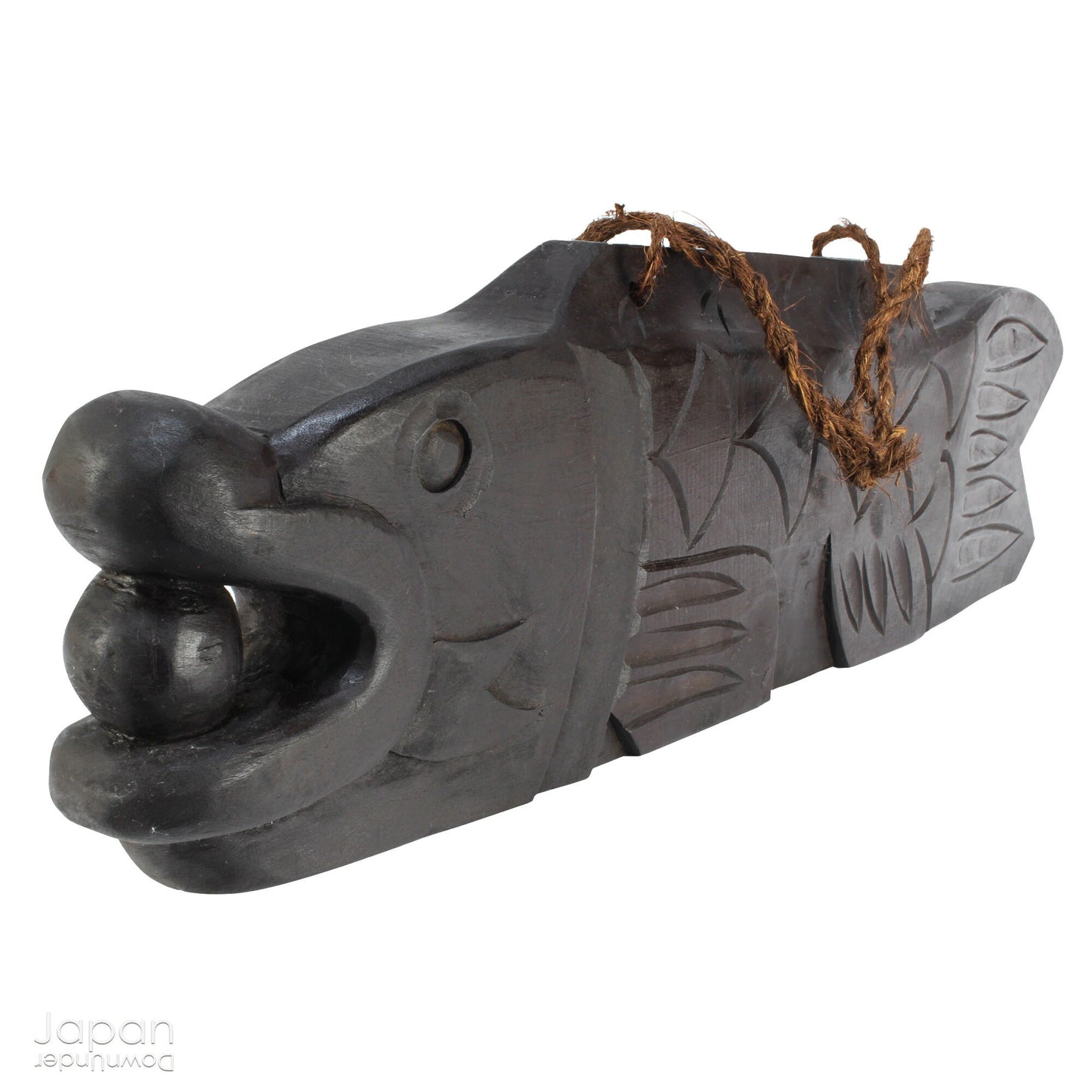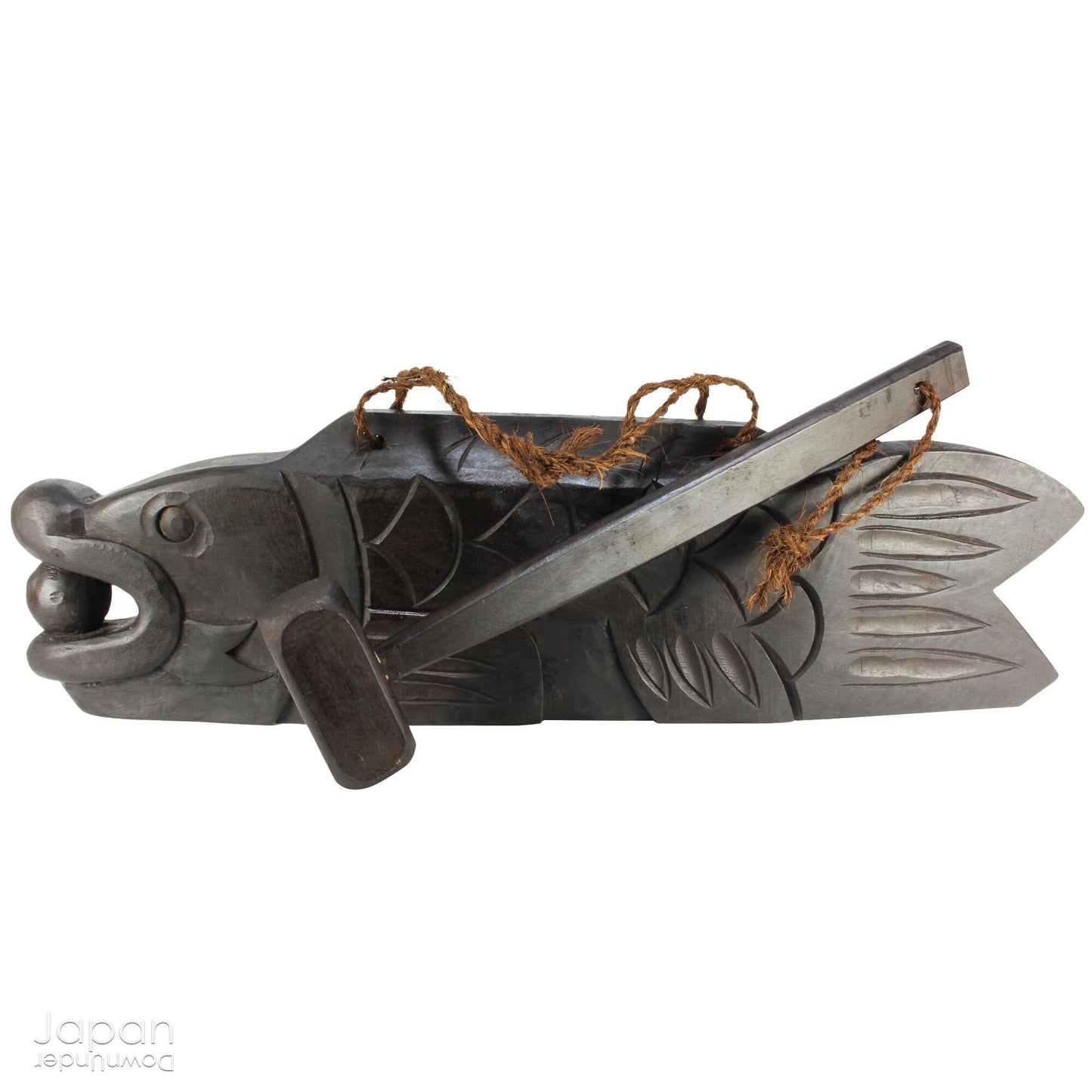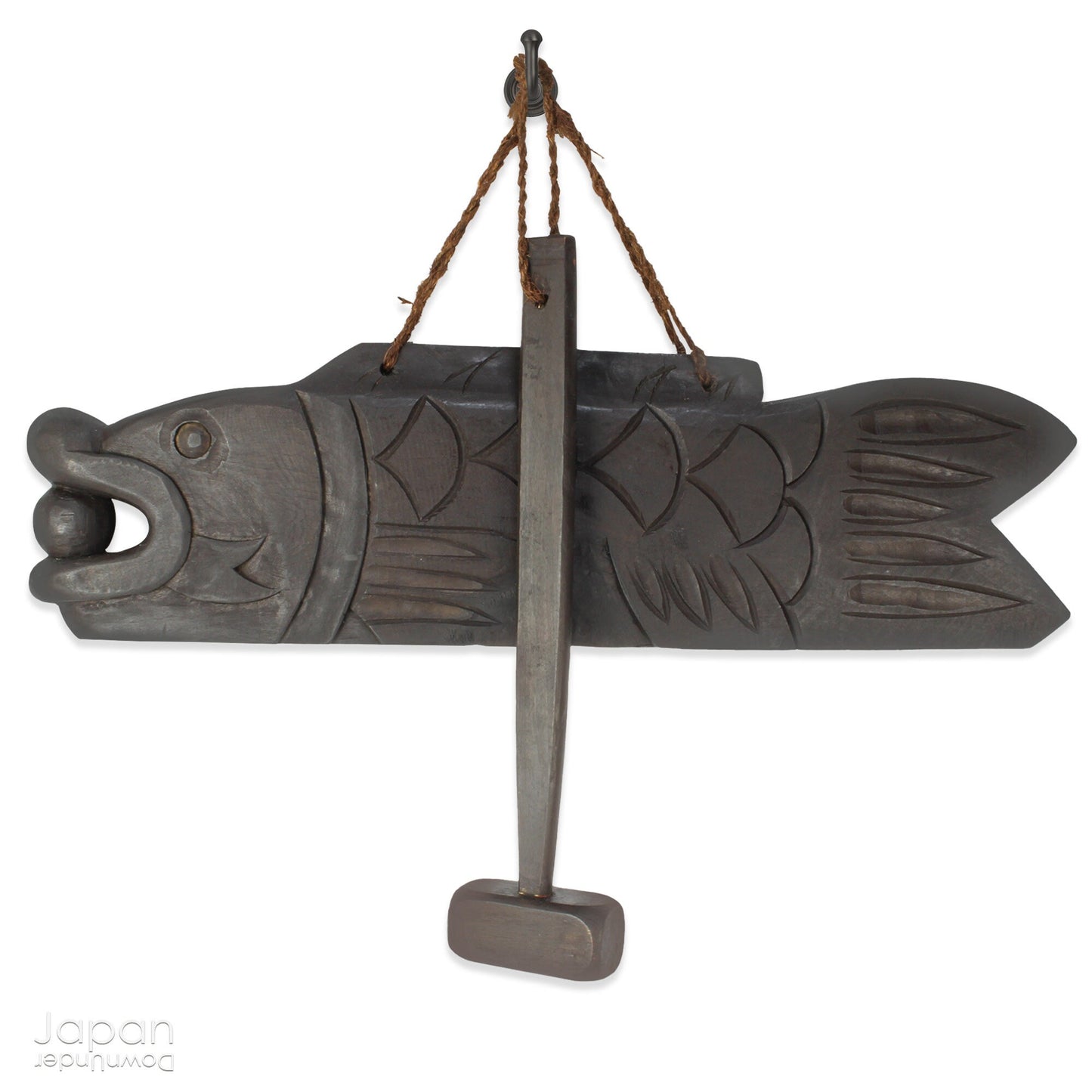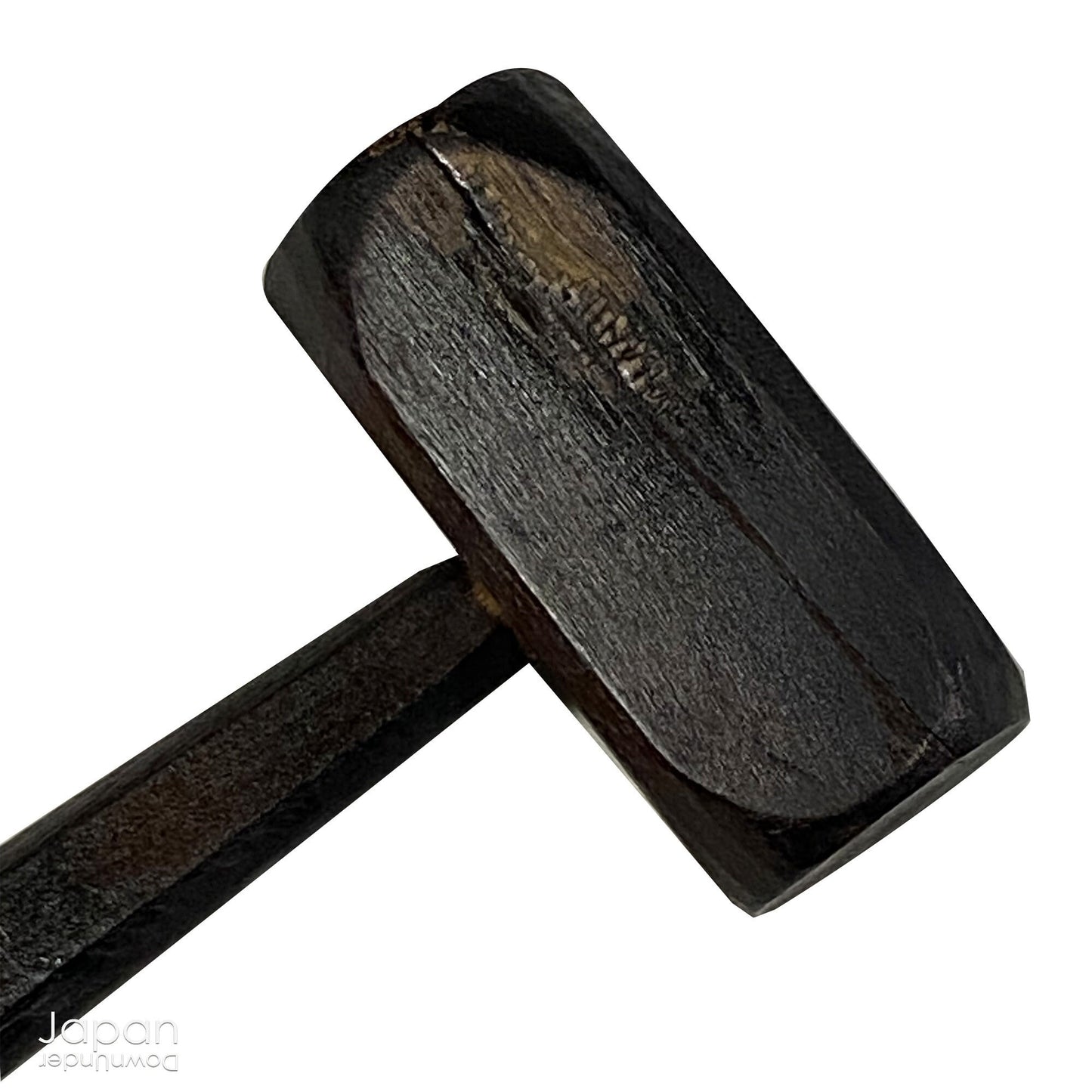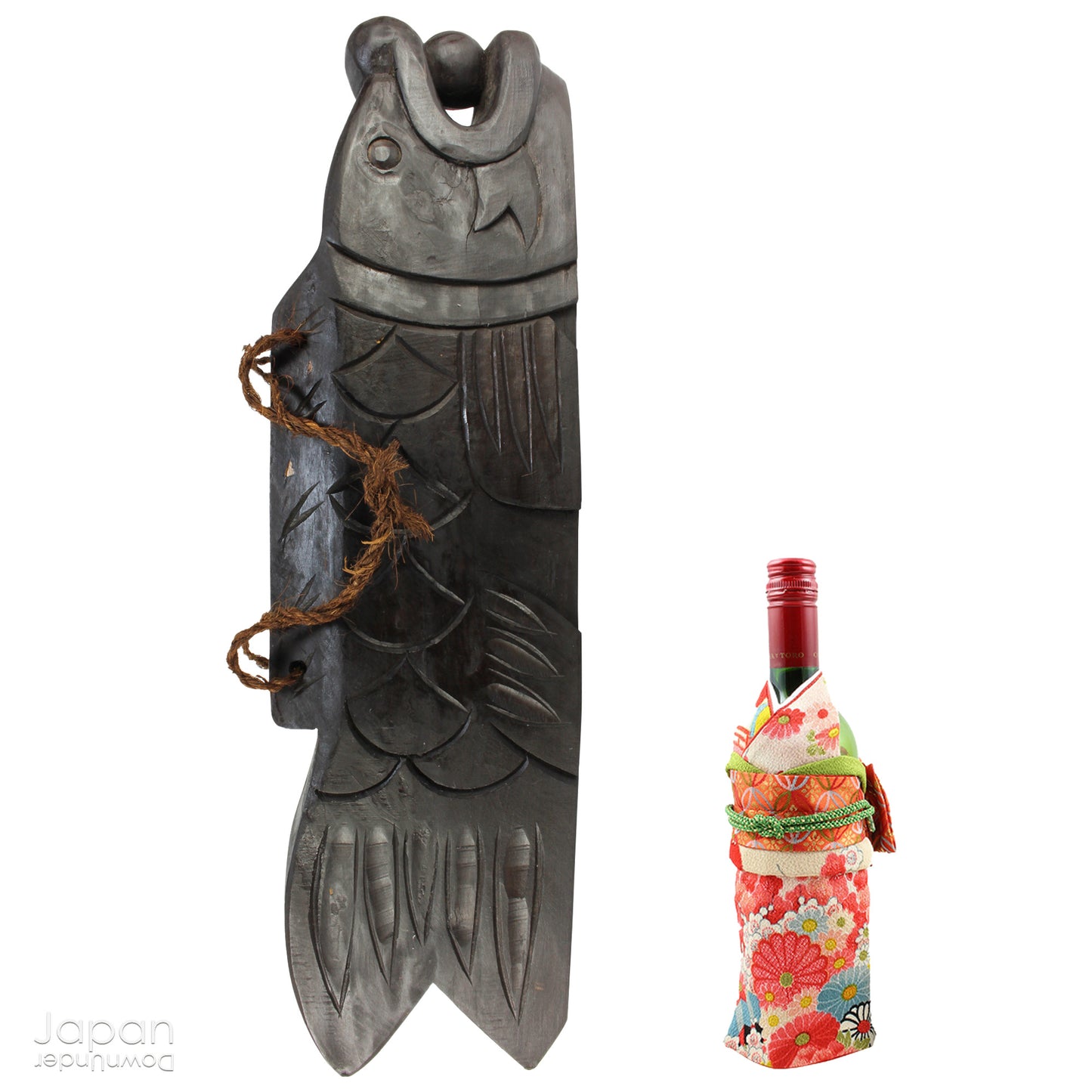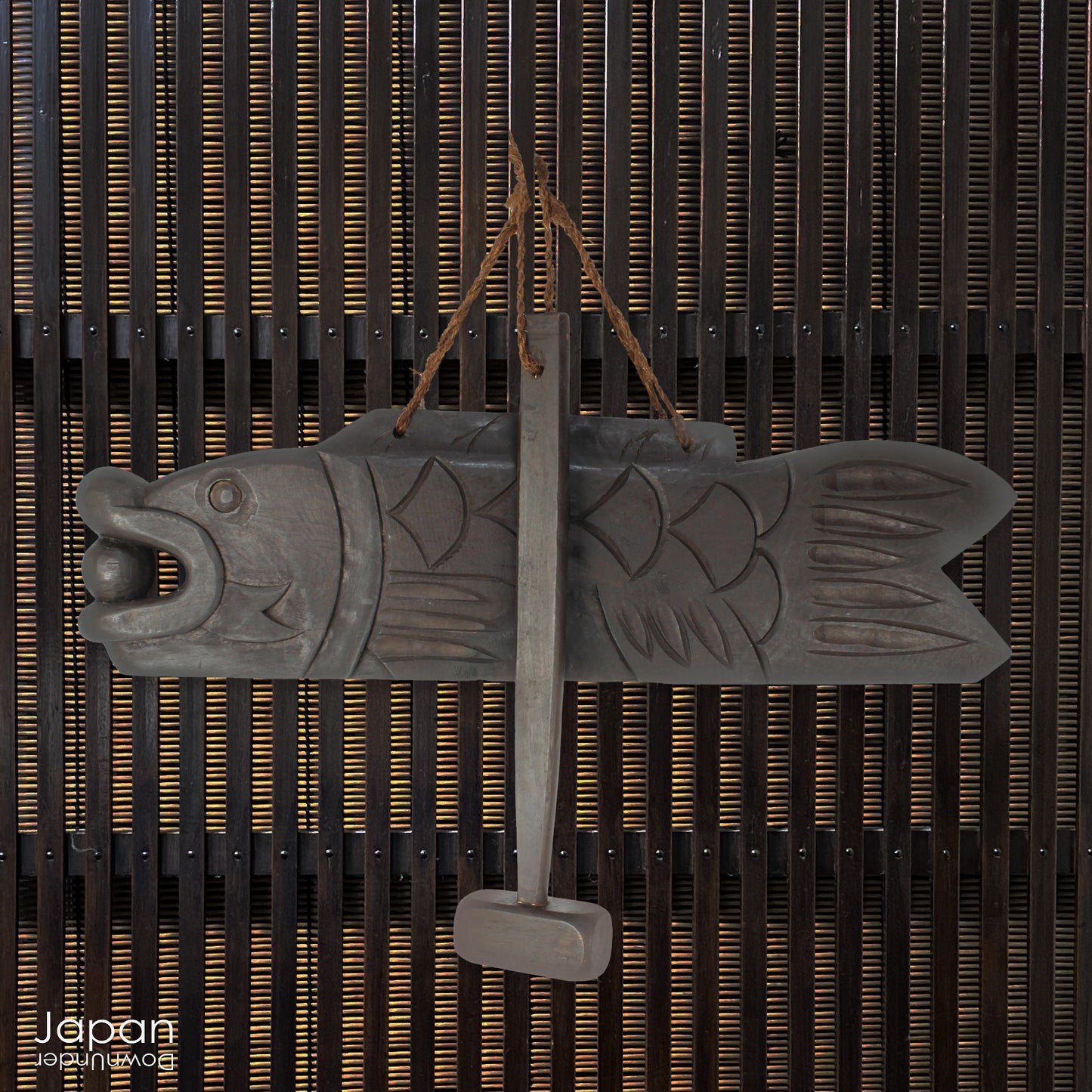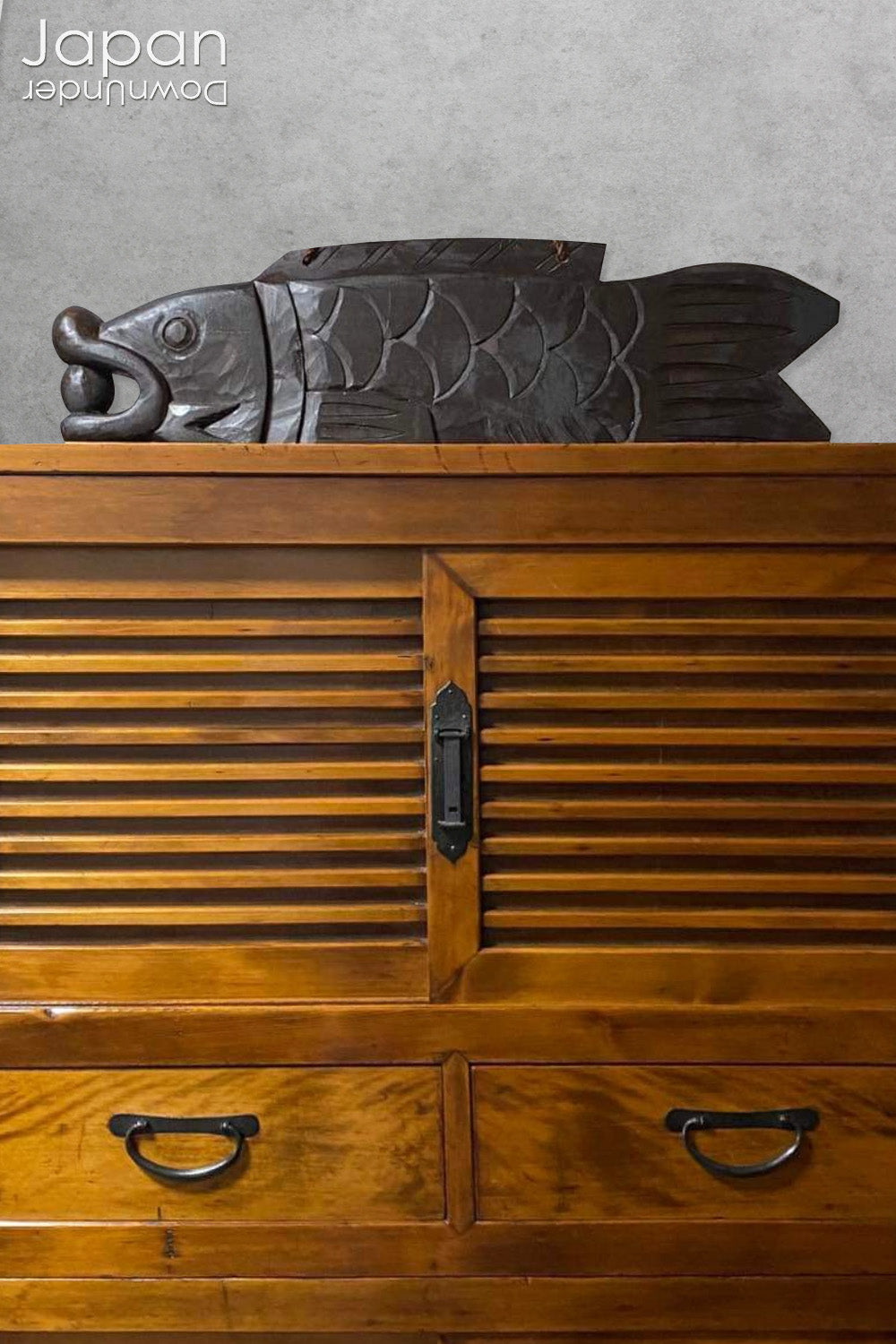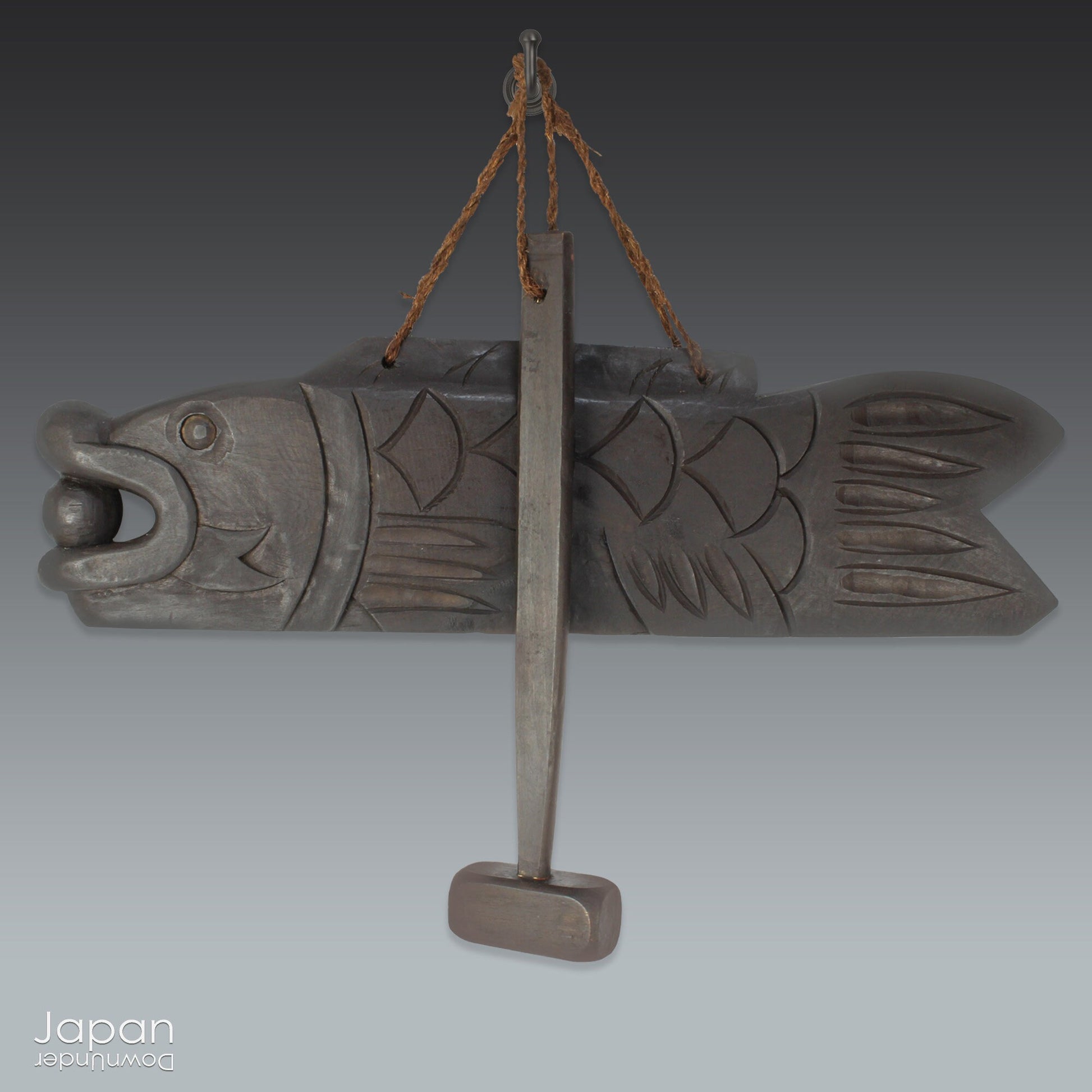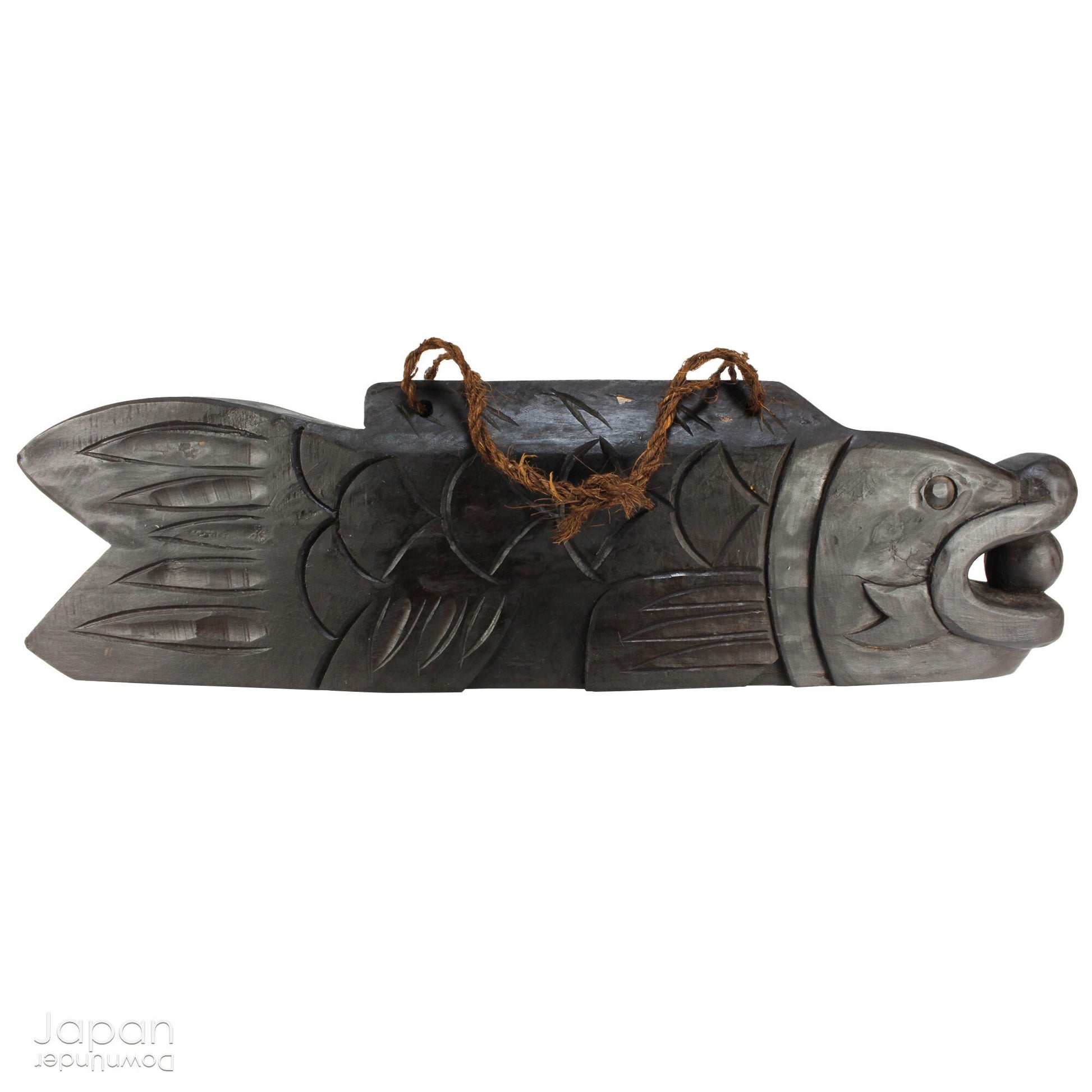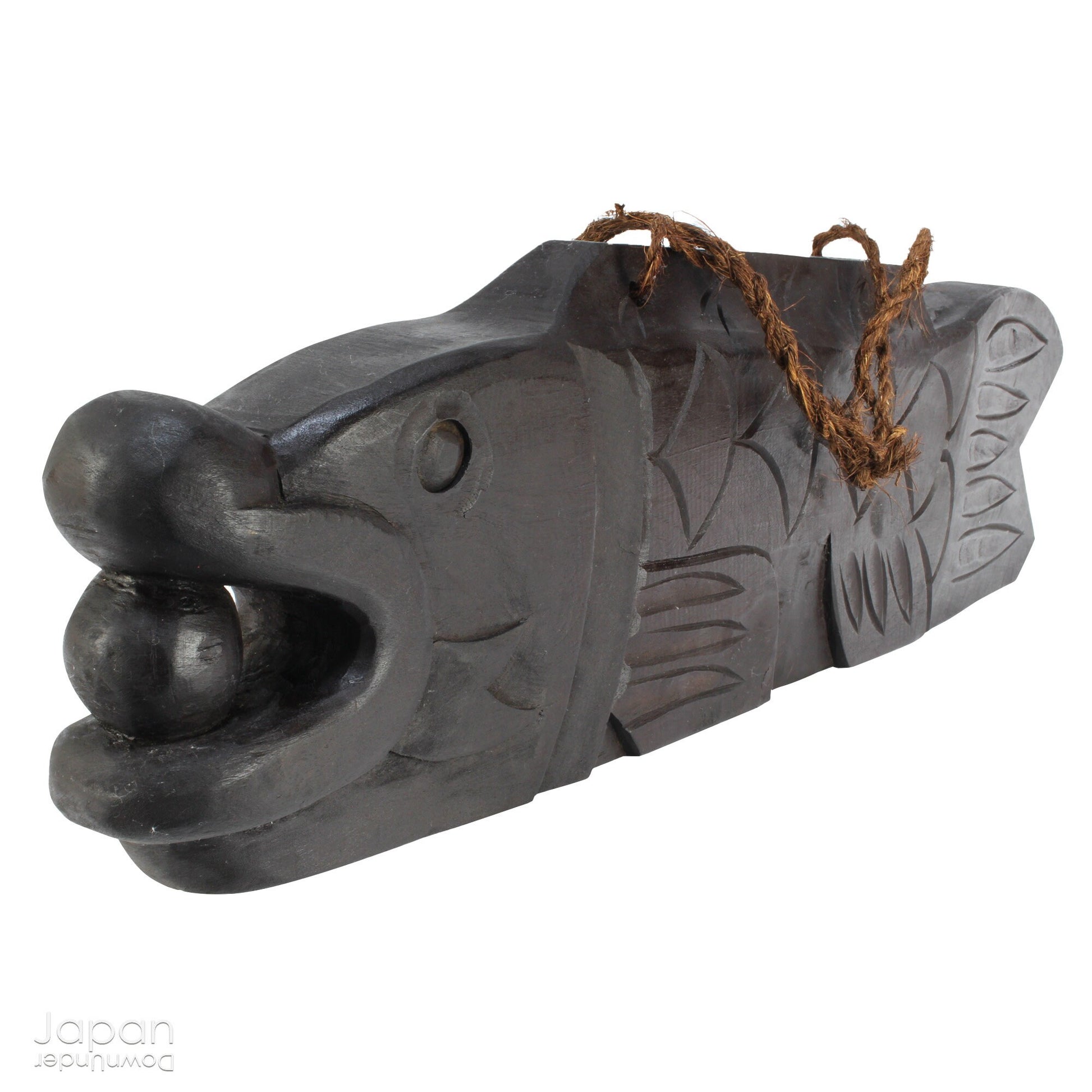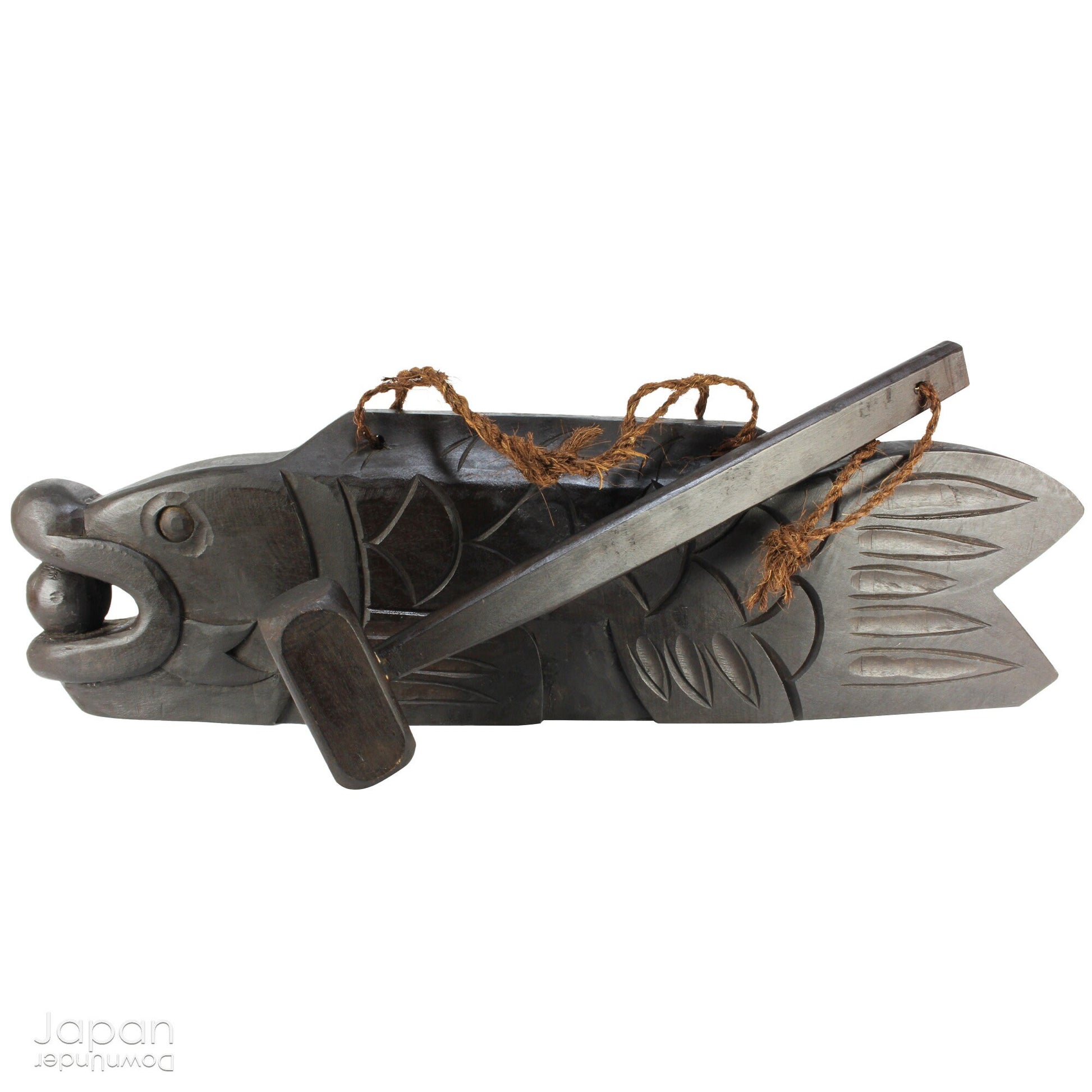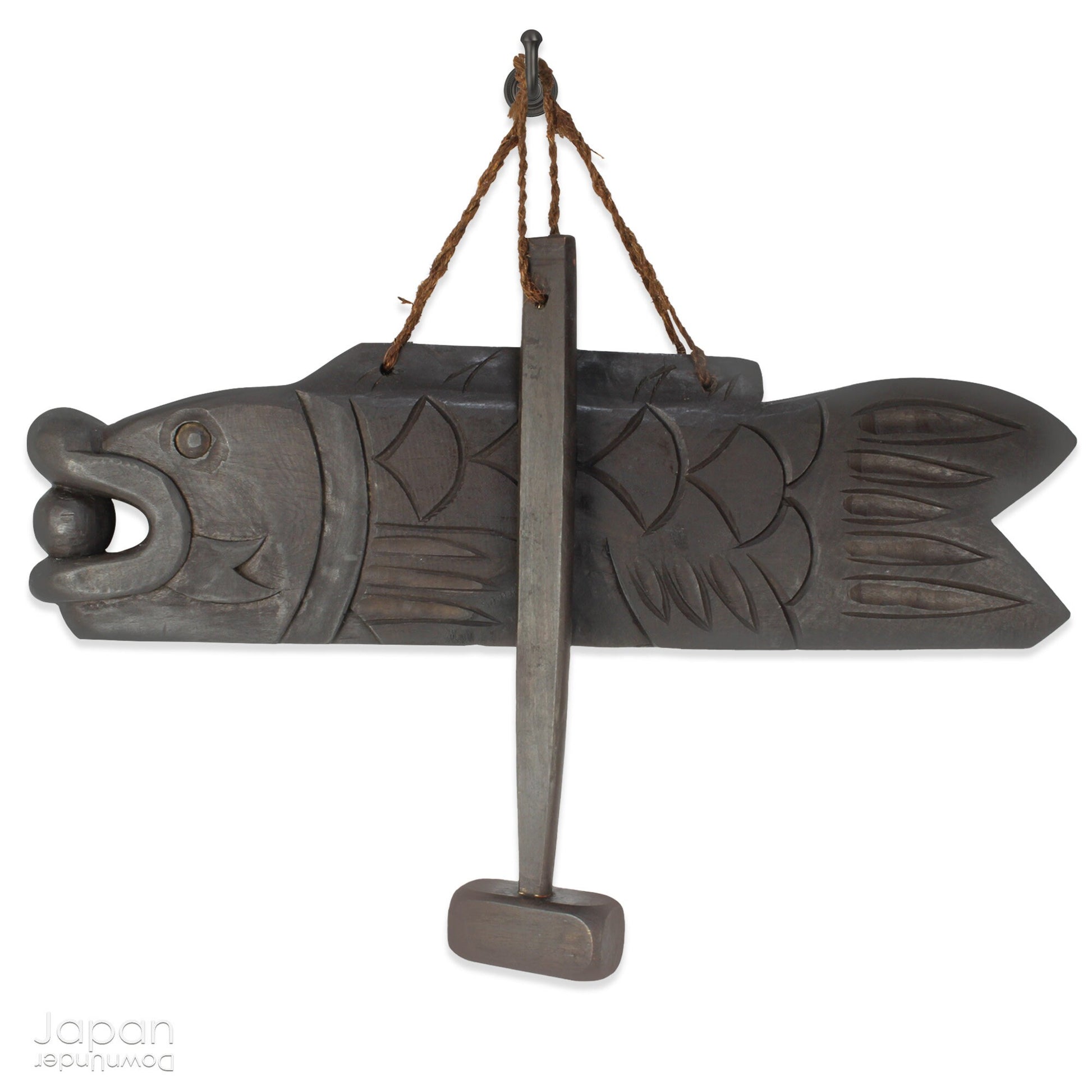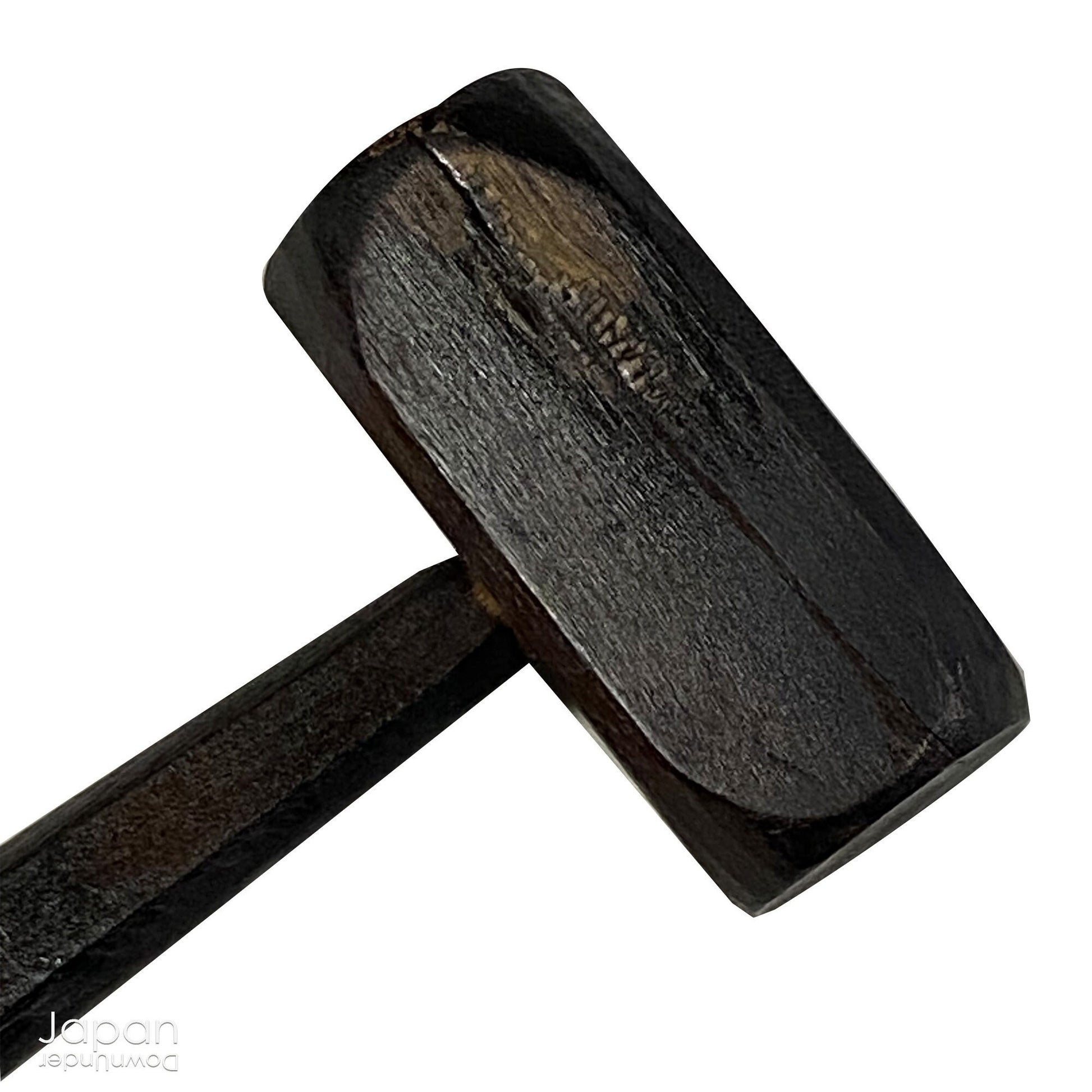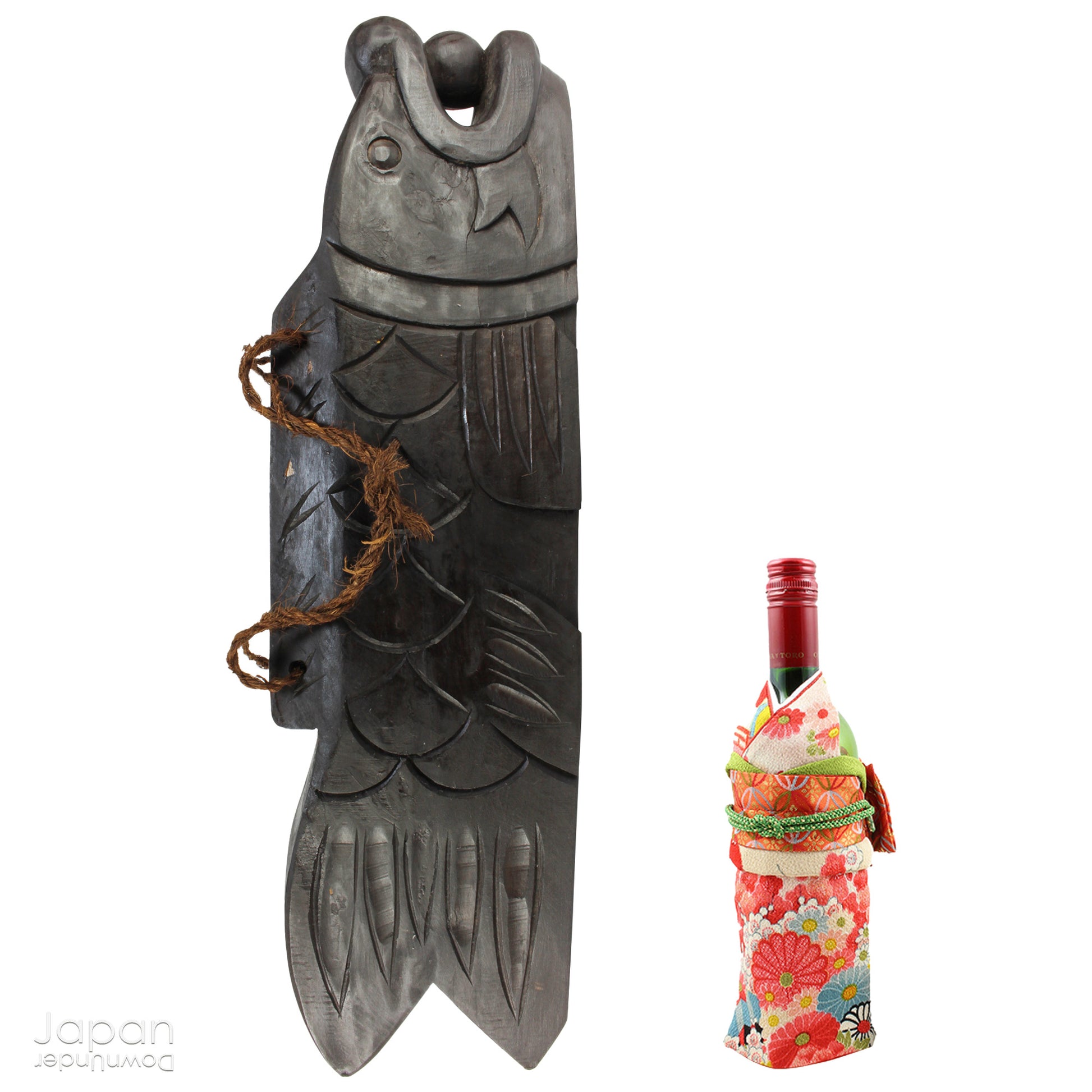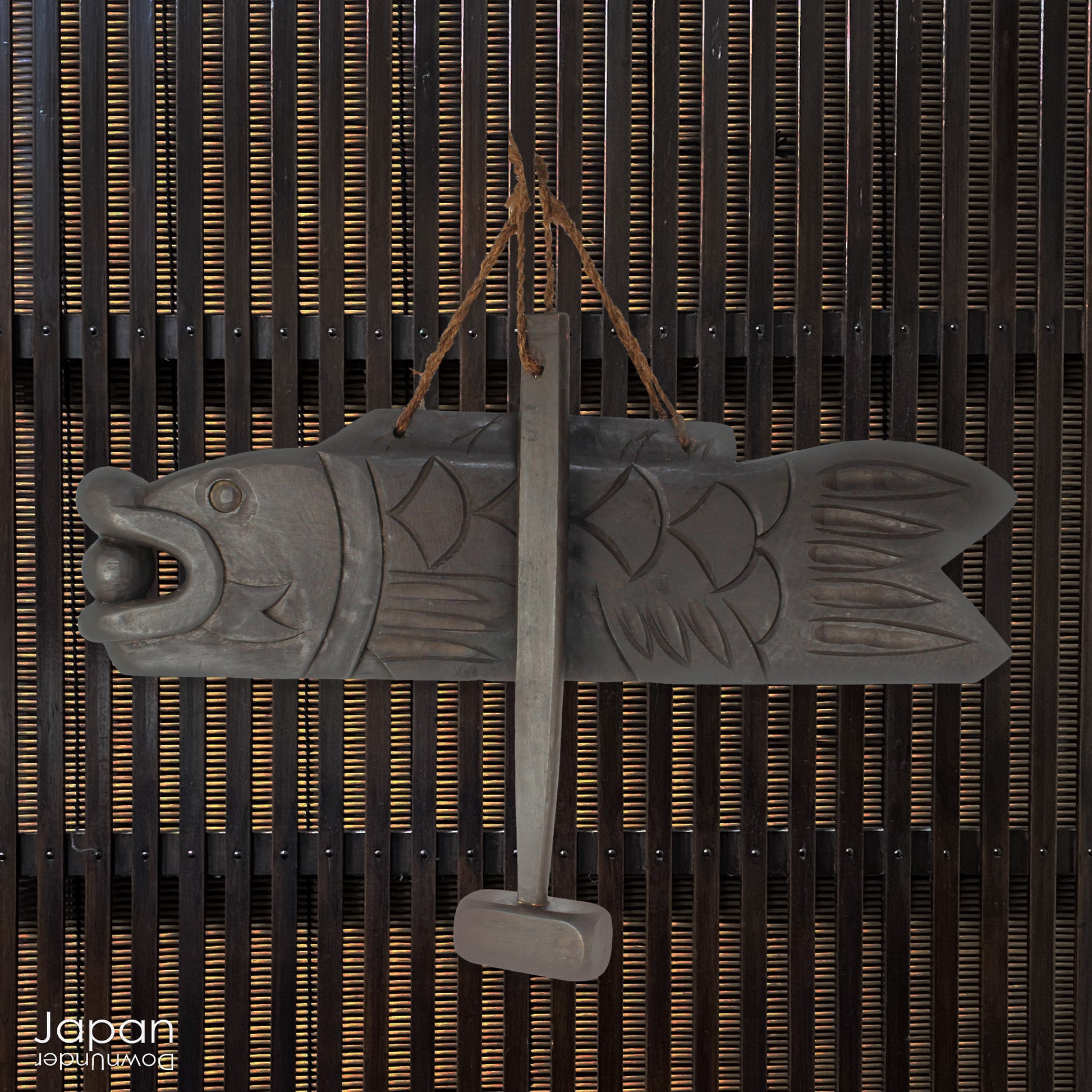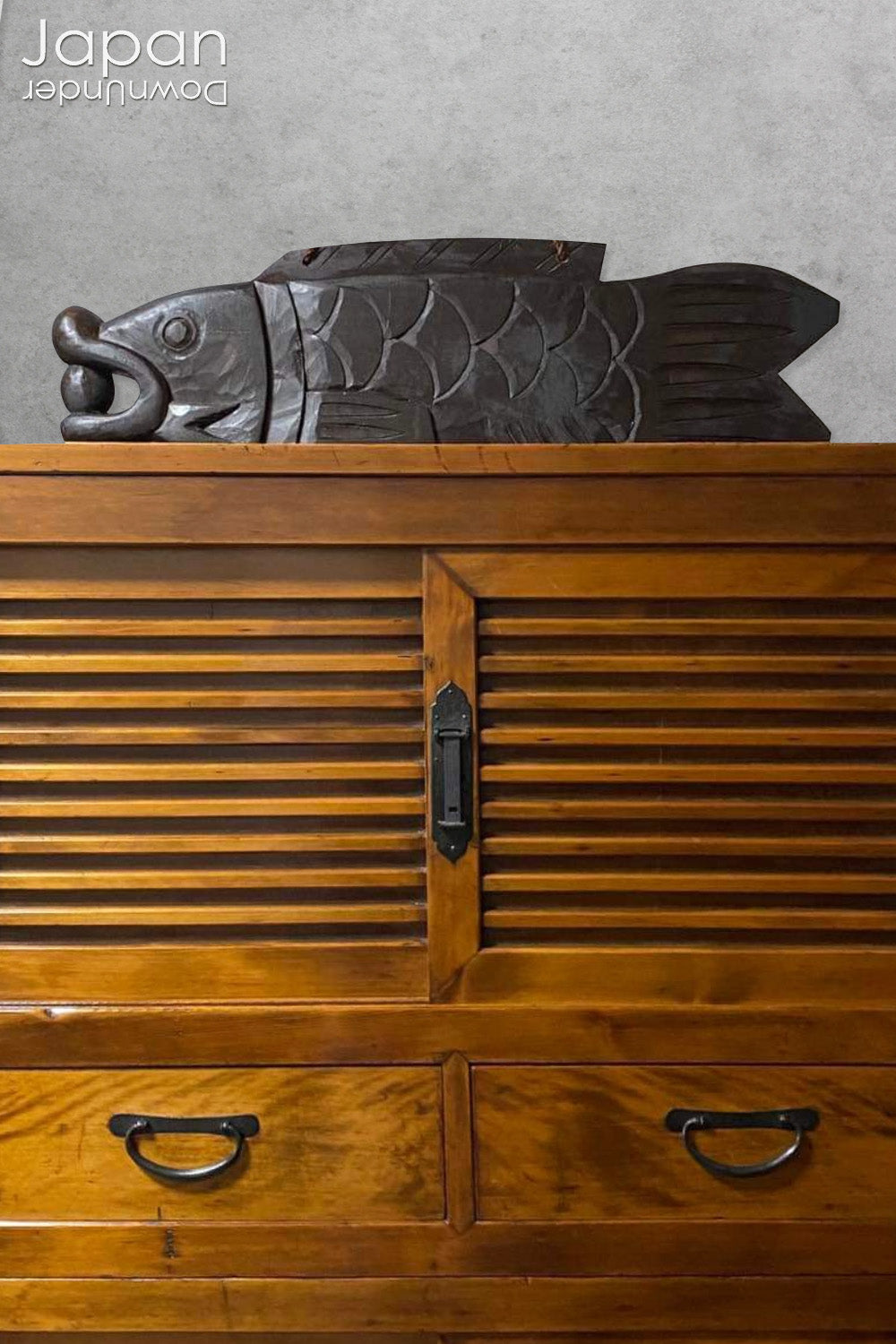My Store
buddhist temple fish drum with striker, summoning fish drum, gyoban
buddhist temple fish drum with striker, summoning fish drum, gyoban
Couldn't load pickup availability
Love Japanese Style Like We Do
Add a touch of cultural richness and serene elegance to your home with this exceptional large wooden Buddhist fish drum. This stunning, handcrafted piece effortlessly marries rustic charm with profound spiritual significance, making it a striking focal point for any space seeking both style and tranquility.
Known as a gyoban, this vintage Buddhist temple drum was traditionally used to summon monks to gatherings. Carved from a single, substantial piece of wood, the drum takes the form of a fish - a symbol of vitality and abundance in Buddhist culture. The meticulously etched scales, expressive eye, and graceful fin details bring the fish to life, while the large, round pearl nestled in its mouth signifies unity and harmony.
The fish comes complete with a wooden striker and is in very good vintage condition, showcasing the marks of its age with a few signs of use and gentle surface peeling. The base of the striker bears a slightly larger area of peeling, adding to the piece's authentic vintage appeal.
Whether displayed as a centerpiece on top of a chest, or hanging proudly on your wall, this remarkable piece of temple art will infuse your home with a sense of peace, history, and spiritual depth.
- fish measures around 60 cm (23.6") long x 17.5 cm (6.8") high x 7 cm (2.7") deep.
- striker measures around 40 cm (15.7") long.
- weighs 3,600 gm.
(listing for fish drum and striker only)
SHIPPING INFORMATION
- please read our shipping notes in shipping policy.
- we use recycle packaging wherever possible and wrap for safety, rather than appearance!
ABOUT OUR VINTAGE, ANTIQUE AND OTHER ITEMS
We list pieces we feel are worthy of display. There may be scratches, dents, fading and signs of wear and tear. We try to explain the condition of each item exactly, but may miss something.
Information regarding the item and it’s age is obtained from dealers and our personal research. We do our best to give you the correct information but please be aware that we cannot guarantee this information.
Please message us prior to purchase with any questions you may have about our
products.
GYOBAN-FISH BOARD DRUM
The gyoban is a long wooden board, shaped like a fish, and was used as a Zen Buddhist drum. The fish is carved on the surface with an uroko, or fish scale pattern and holds a round pearl in its mouth. It was usually hung outside temple doors and was struck to announce meal times, meditation and other gatherings for monks. It is believed that each time the gyoban is struck in the belly, desire is dispelled.
The origin of the fish shape is not clear, but some say the gyoban fish form is because fish do not close their eyes when sleeping. This reminds monks to always be alert and concentrate on their sutras; the drum sound symbolizing wakeful attention.
There is also a legend where a Chinese Buddhist monk was walking to India to collect sutras. He came to a fast flowing river. A large fish came out of the water and offered to take the monk to the other side. Halfway across the river, the fish said he wanted to atone for a crime committed when he was a human. He asked the monk, if he met Buddha, to find out what was needed for the fish to become a bodhisattva. The monk quickly agreed.
It took the monk 17 years to gather the sutras. When he was returning to China he came to the same fast, dangerous river. Again, the fish came out of the water, offering to take the monk across. On the way, he asked the monk if he had fulfilled his request. The monk said he had forgotten and the angry fish threw the monk into the river and swam away. The monk was saved from drowning by a fisherman, but the sutras were all lost and destroyed.
The monk was so angry that he had a fish carved out of wood. As he recalled the misfortune of his wasted 17 years of searching for the sutras, he beat the fish with a hammer. Each time he hit the fish he was surprised to discover that a Chinese character came out of the fish’s mouth until finally, years later, all the lost sutras were recovered.
The gyoban board or plank was the first wooden fish drum to be developed and it gradually evolved into the round, hollow wooden fish used by Buddhists today.
Share
